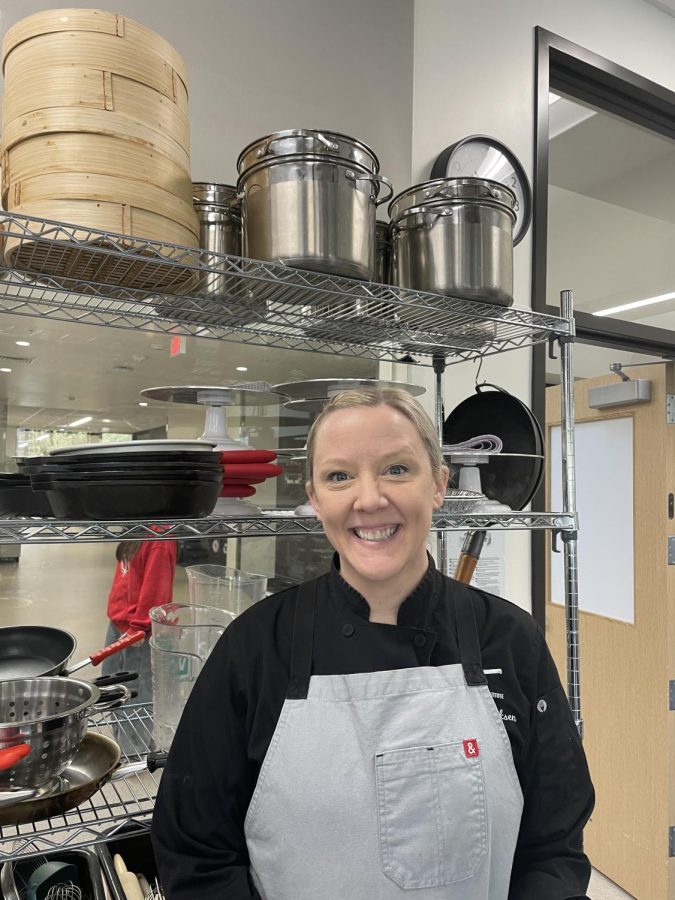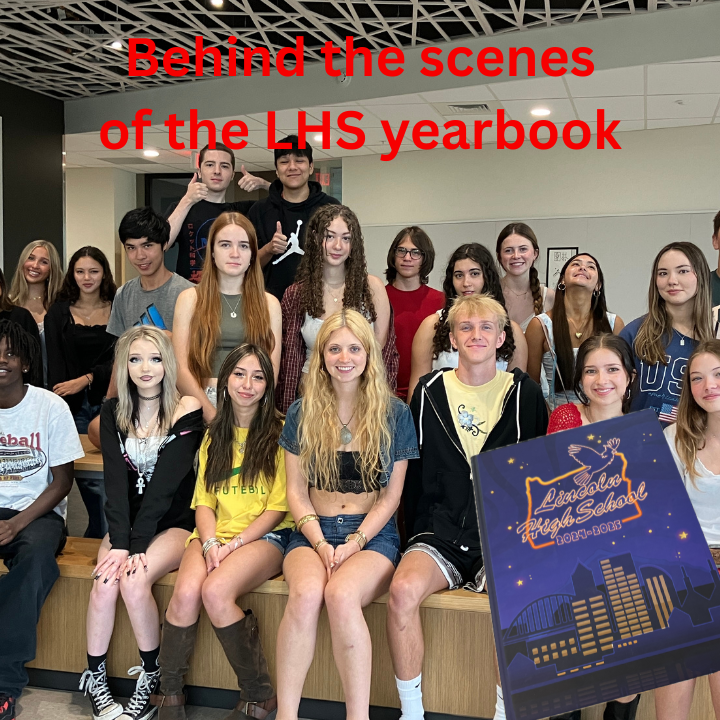Students and faculty discuss gender inequalities in the culinary field
Melanie Hammericksen is Lincoln’s culinary arts teacher. She is hopeful that the culinary industry will continue to have better gender representation.
March 16, 2023
Junior Lydia Levy fell in love with cooking when she started a small baking business for home deliveries during the COVID lockdown.
“It makes me happy to feed people. It makes me happy to cook and play with flavors and textures. And then I was like, wait, I can do this. Yeah, this can be my job,” said Levy.
Levy has had some experience in the professional kitchen, working at the restaurant Grassa and then in recipe development for a private firm. When she started at Grassa, she was one of two women working there.
“Both of my bosses were men, but they were so nice, It was kind of hard to tell if it was because I was a teenager and they were adults, or I was a woman… I feel like it was a pretty good environment, but I know that that’s not true everywhere,” Levy said.
In the United States, the culinary workplace is male dominated. Zippia, a job search company that pulls data from the U.S Bureau of Labor Statistics, estimates that of the 147,434 chefs in the United States, just 25.2 percent are women. Additionally, a 2021 survey from the UC Berkeley Food Labor Research Center revealed that 71% of women restaurant workers had been sexually harassed at least once during their time in the restaurant industry.
Levy points out that this issue stems from a history of exclusionary policies that kept women from entering culinary schools. For example, from 1966-1971 women were not admitted into the Culinary Institute of America, with the stated reason of limited facilities at the New Haven campus.
“I actually think it’s kind of funny, because in America, the stereotype is that women stay home and cook. But when it comes to jobs, it’s the men that could cook professionally,” said Levy.
Melanie Hammericksen, Lincoln’s culinary arts teacher, is hopeful that the gender disparity in chefs will continue to shifting as more women enter the culinary field.
“I think that that’s changed a lot even in the past five years, there’s a lot of just really badass women that are coming in and trailblazing,” said Hammericksen.
Through her work teaching in the culinary program, Hammericksen wants to instill confidence in her students and show them that anyone can cook.
“At the end of the day, that’s really what I want my impact to be…giving people confidence that they can do anything, whether it be like a recipe, something they want to make, or just in life, just providing a safe space for people to be and to have competence to do other things,” said Hammericksen.




